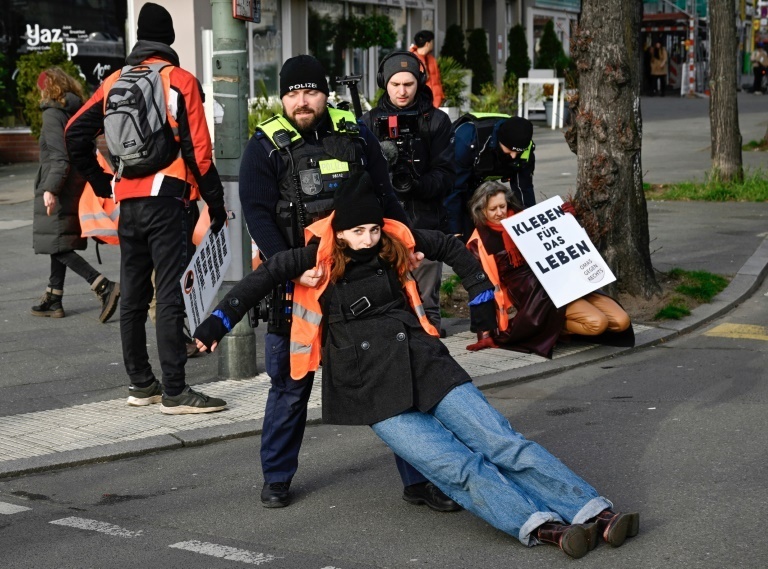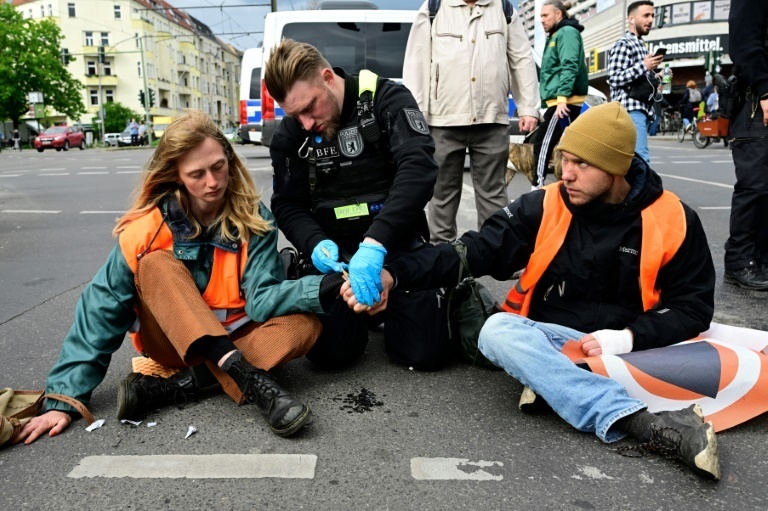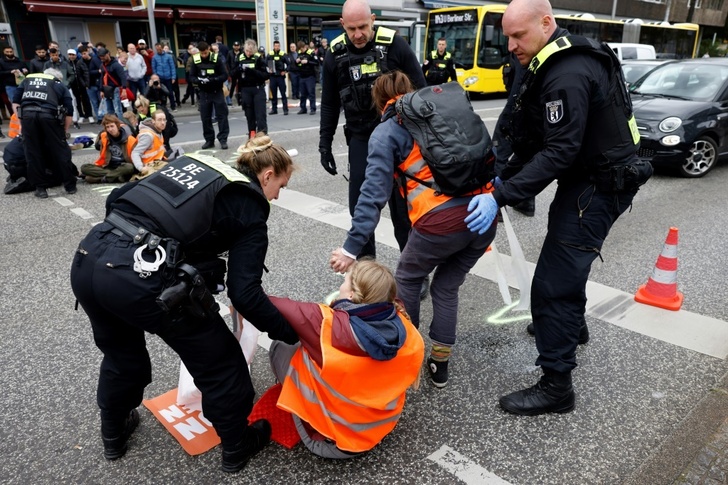Moritz Riedacher sat down at a busy road junction with four other climate activists in southwestern Germany earlier this year, holding up traffic for hours –- an action that landed him a jail sentence. But he remains undeterred.
This week, the 26-year-old journalism student again halted traffic, this time in Berlin where fellow activists in the group Letzte Generation (Last Generation) launched a campaign demanding stronger climate protection policies.
Riedacher, who has not yet been imprisoned pending appeals, is among the first in Germany to land a jail conviction over such protests.
"I find it really, really hard to process the verdict," he told AFP, calling the four-month sentence handed to him this month over the Heilbronn protest "disproportionate".
"It is definitely urgent" for the government to do more for climate protection, he said, pointing to the 2021 deadly flooding in southern Germany.
"We can't say let's just go on as normal. Rather, we need to cause disruptions," said Riedacher.
The controversial tactics of Letzte Generation, from hunger strikes to throwing mashed potato on paintings in museums, has resulted in the group being described by some German politicians as "climate terrorists".
Over the last year, its sit-ins on roads complete with some members being glued to the asphalt have become increasingly frequent.
In turn, more activists are landing in court.
- 'Coercion' -
While most received fines for disrupting traffic or obstructing police work, the court in Heilbronn has raised the stakes with months-long jail sentences.

Deputy chief of the union for German police, Heiko Teggatz, said Schmitt's ruling should be used as an example.
"That is the only signal that these idiots understand," Teggatz told the daily Welt, urging preventive detention of up to 30 days followed by expedited trials that result in heavy jail-terms.
The protesters have not drawn sympathy from Chancellor Olaf Scholz's government, with even junior coalition partner the Greens opposed.
Calling the group's approach "wrong", Economy Minister Robert Habeck of the Greens told news channel NTV that "this protest doesn't win a majority for climate protection, rather, it irritates people, divides society and in that sense, it's not a helpful contribution to climate protection".
Accusations have flown that the blockades hinder emergency services such as ambulances.
And scenes of frustrated motorists shouting at the protesters or dragging them away have accompanied much of the action.
But Riedacher argued that "at the same time, more people are showing solidarity, perhaps after being moved by these harsh rulings".
If the verdict against him is upheld, he could end up with a criminal record that could prove troublesome in the future.
But he and other protesters, many of whom are young, are unfazed.
- 'Pay the price' -

Prosecutors argue that street blockades force motorists to take certain actions -- stop moving -- against their will.
Different courts have weighed up the imperatives of the right to protest against the coercion charge, with varying outcomes.
Whatever the verdict in her case, the 26-year-old actress vowed to keep blocking traffic "because I understand that the climate crisis is now the key point on which our entire future hinges".
The activists carry out demonstrations with the full knowledge about potential consequences.
Not only do they undergo training on how to glue themselves on asphalt but are also given legal advice.
The trials themselves offer "a platform with wide reach" to bring climate concerns to the public, said Last Generation on its website.
Activist Henning Jeschke glued himself onto a table during his trial.
After he was carried out of court with the table, he halted traffic a month on again with other activists, table in tow.
Trommer's father, Stefan Diefenbach-Trommer, told AFP of his "shock" at his daughter landing in court "not because of her action but because she is being prosecuted for taking on responsibility for the future of this planet".
Like his daughter, he shrugged off the potential impact that the legal procedure could have on her livelihood.
"What's the use of a super CV or a great university degree if the world is no longer liveable?" he said.
Trommer admitted that she had been jittery on the eve of the trial, but added: "I am ready to go to jail if necessary."
"Having a criminal record is the lesser evil compared to what the climate crisis will bring. If that's the price that I have to pay, then I'll pay," she said.
hmn/sr/giv
© Agence France-Presse
Your content is great. However, if any of the content contained herein violates any rights of yours, including those of copyright, please contact us immediately by e-mail at media[@]kissrpr.com.
Source: Story.KISSPR.com

